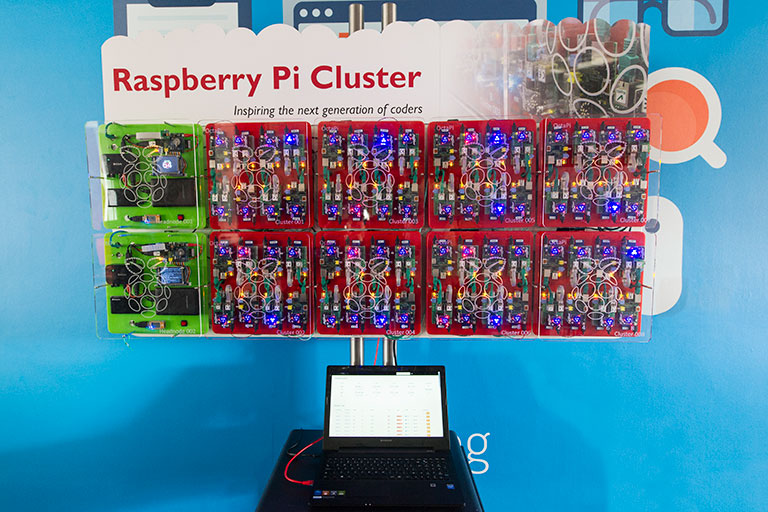GCHQ today unveiled the world’s biggest Raspberry Pi ‘Bramble’ in an attempt to inspire the next generation of young talent to think about a future in science and technology.
The British intelligence and security organisation showed off 66 of the credit card-sized computers networked together at the Big Bang Fair 2015 in Birmingham, verified as the ‘world’s largest Bramble’ by the Raspberry Pi Foundation.
Built by GCHQ’s own in-house computer experts for an internal competition, the purpose of the Bramble is not only to help teach students how to programme a computer in an efficient and effective way at scale, but to show that science and technology can be fun.
The Bramble is made up of eight clusters of eight Raspberry Pis, which GCHQ has termed an ‘OctaPi’, plus two extra machines. It is essentially a cloud computer in miniature.
Networking dozens of computers in this way demonstrates the ‘scale out’ principle of how the speed of algorithms increases when many computers are used.
This principle will be an important part of computing in the future. The current generation of technology has reached its physical limits and one way to do more is to use multiple processors in parallel. The Bramble will therefore help young programmers to learn relevant coding skills.
The OctaPi Bramble can be used to run many of the real-world applications and software utilised on large-scale public and private cloud platforms available to the IT industry today.
>See also: Coding skills: one byte forward or two bytes back?
This provides users with a great opportunity to use the platform to develop their skills on both open source and bespoke software and hardware on a low-cost accessible system.
GCHQ hopes its Bramble will inspire others to be creative with Raspberry Pis. The ultimate aim is to use the OctaPi concept in schools to help improve programming habits amongst young people.
A GCHQ spokesperson said: “We are really excited about the launch of what we believe to be the world’s biggest Bramble, which provides a fun and interesting way of understanding the benefits of networking computers at scale and developing relevant skills in coding."
Eben Upton, CEO of Raspberry Pi, added: "Clusters of Raspberry Pis provide students with an inexpensive way to gain experience of the challenges involved in software development for white-box supercomputers. With this in mind, we're delighted to see our friends at GCHQ taking their OctaPi machine to this year's Big Bang Fair."







